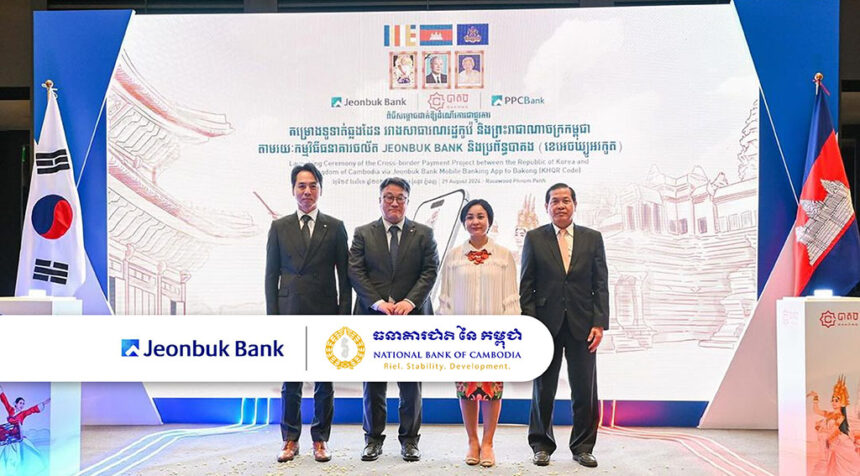Cambodia and South Korea have officially launched a new cross-border payments system.
Currently in its first phase, the system will enable South Korean Jeonbuk Bank customers to make seamless payments to Cambodian merchants using the Bakong (KHQR) QR code.
The opening ceremony in Phnom Penh was attended by senior officials including Dr Chea Serey, Governor of the National Bank of Cambodia, and Kim Tae Hyun, Vice President of Jeonbuk Bank.
The initiative follows a memorandum of understanding signed in May between the National Bank of Cambodia and JB Financial Group, aimed at strengthening economic ties by promoting trade and tourism, and advancing financial inclusion in the country.
The system allows Korean tourists to pay for goods and services in Cambodia using their mobile phones without having to exchange currency.
It is expected that this will revitalize the tourism industry and contribute to Cambodia’s economic development.

Dr. Chea Serey, Governor National Bank of Cambodiasaid,
“Today’s event marks another milestone for the National Bank of Cambodia in launching a new QR code cross-border payment corridor between the Republic of Korea and the Kingdom of Cambodia, taking financial cooperation between the two countries to whole new heights through the use of financial technology that will directly benefit the people of both countries.”
Furthermore, the launch of the new cross-border payment system will contribute greatly to boosting trade activities, revitalizing tourism and supporting financial inclusion in Cambodia.”
Kim Tae-hyung, vice president of Jeonbuk Bank, said:
“The official launch ceremony of this initiative marks another milestone that will enable our subsidiary, PPCBank, to play a key role in the operation of this payment system while building a financial bridge between South Korea and Cambodia.
“This joint effort will meet the needs of Korean travelers and allow them the convenience of paying in Khmer Riel without the need for foreign currency. This will not only contribute to the revival of international travel, but also help boost Cambodia’s economic development.”





